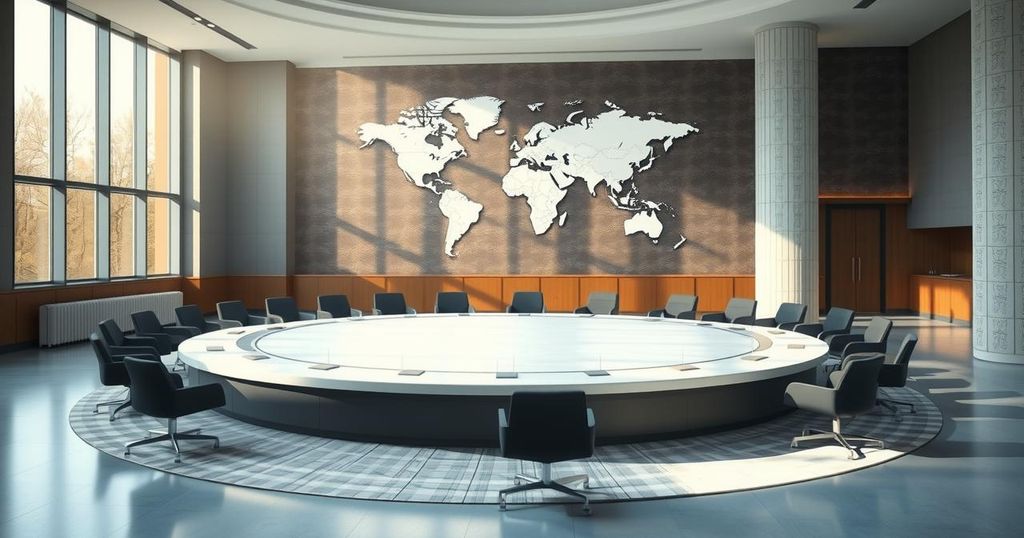The G20 foreign ministers met in South Africa to discuss global issues, notably the Ukraine war, amid U.S. Secretary of State Rubio’s absence. Key discussions included Japan’s support for Ukraine, concerns about U.S.-Russia negotiations, and China’s increased outreach to developing countries. South Africa’s presidency emphasized the need for multilateral cooperation to tackle significant global challenges.
The Group of 20 (G20) foreign ministers convened in South Africa to deliberate on critical issues such as the war in Ukraine and global geopolitical dynamics. The absence of U.S. Secretary of State Marco Rubio raised concerns as it opened avenues for Russia and China to strengthen their ties with developing nations and emerging economies.
Japanese Foreign Minister Takeshi Iwaya reiterated Japan’s commitment to support Ukraine, emphasizing the importance of diplomatic negotiations to achieve peace after nearly three years of conflict. Iwaya also expressed concerns regarding Washington’s perceived distance from Kyiv as the U.S. administration pursues talks with Russia without Ukraine’s involvement.
South African President Cyril Ramaphosa highlighted the impact of war, climate change, and food insecurity on global stability, pointing out the lack of consensus among major powers. He stressed the necessity of adhering to the principles of the U.N. Charter and multilateral cooperation to effectively address worldwide challenges.
Chinese Foreign Minister Wang Yi emphasized support for developing nations and affirmed China’s commitment to a constructive role in resolving the Ukraine conflict, referring to U.S.-Russia negotiations as potential efforts for peace. He also mentioned cooperation with Russia, indicating a strengthened partnership aimed at achieving mutual goals.
During discussions, Iwaya confirmed Japan’s role in contributing to Ukraine’s long-term recovery while addressing the concerning relationship between Russia and North Korea. He underlined the G20’s importance in fostering global cooperation and maintaining diplomatic dialogues. Additionally, Iwaya discussed enhancing trade relations with Brazil and supporting an upcoming U.N. climate conference.
The G20 comprises Argentina, Australia, Brazil, Britain, Canada, China, France, Germany, India, Indonesia, Italy, Japan, Mexico, Russia, Saudi Arabia, South Africa, South Korea, Turkey, the United States, along with the European Union and African Union. This year’s presidency is held by South Africa, marking a significant step for African representation in global dialogues.
The G20 meeting in South Africa highlighted significant global issues, particularly the ongoing war in Ukraine, and the geopolitical shifts influenced by U.S. diplomatic absences. Japan reaffirmed its commitment to supporting Ukraine, while China expanded its influence among developing nations. The summit underscored the pressing need for international cooperation amidst rising tensions and conflicts, calling for collective efforts to address global challenges. Ultimately, the G20’s role as a platform for dialogue and collaboration among major economies remains pivotal in navigating the complex landscape of international relations.
Original Source: english.kyodonews.net






